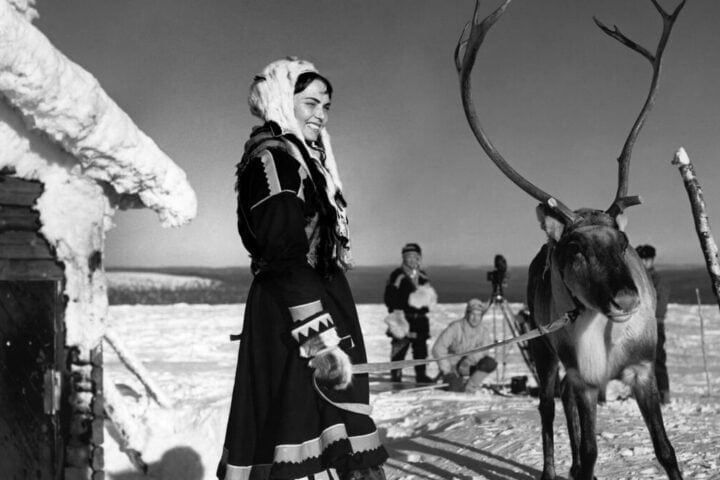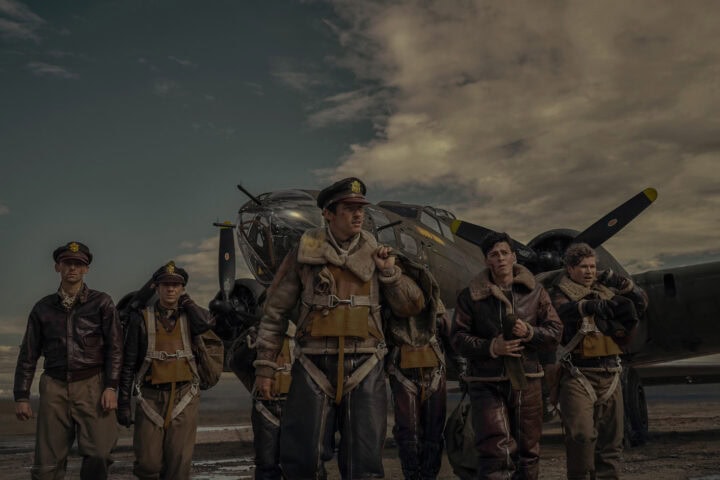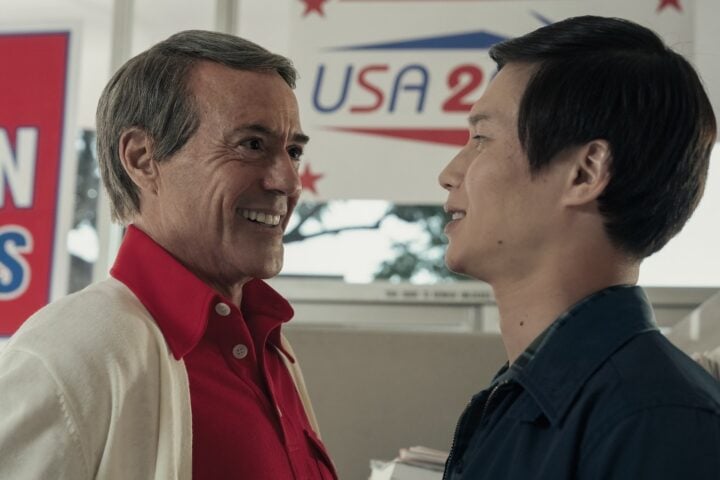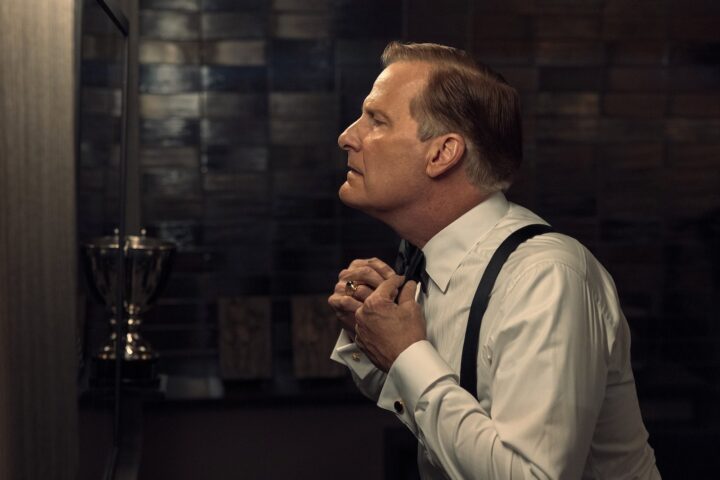In Hulu’s Shardlake, as in Arthurian legend, a hand emerges from a body of water bearing a sword. Though lacking Excalibur’s magical touch, this blade’s discovery does serve the ambitions of a monarch. After splitting England from the Catholic Church in 1534, King Henry VIII and his chief minister, Thomas Cromwell (Sean Bean), have begun dissolving monasteries across the realm and seizing their wealth. The decapitation of Cromwell’s representative (Michael Rivers) at an abbey near the remote, boggy town of Scarnsea presents an opportunity to advance that crusade, with Cromwell sending an odd couple of agents to investigate the incident, commanding them to find sufficient reason to shutter the order.
In the third episode, the monks watch in horror as endearingly determined lawyer Matthew Shardlake (Arthur Hughes) and Jack Barak (Anthony Boyle), the cocksure enforcer assigned to accompany him, find the submerged murder weapon on their grounds. With the fate of the monastery on a knife’s edge, it’s unclear whether its inhabitants know—or can even imagine—that the duo has merely stepped into the shallows of their sins.
A formidable sense of mystery suffuses Shardlake, which Stephen Butchard adapted from C.J. Sansom’s novel series. The beheaded body that brings Shardlake and Barak to Scarnsea is but the start of their worries, as more corpses pile up, a holy relic is revealed to be missing, and the scope of their work swells. Add to these nested whodunits Shardlake’s digging into the monastery’s land sale records–exposing the monks to a potential downfall befitting Al Capone.
When briefing Shardlake on his mission, Cromwell puts forward his case for what is now called the English Reformation: “It is the purpose of the reforms, is it not, to rid the land of men who grow fat on sin, while ordinary folk do suffer cold, hunger?” Here and throughout its four taut episodes, the series ponders the plight of England’s poor and the greed of the institutions, both religious and secular, that oppress them. But its surfeit of broad, melodramatic commentary grants only the illusion of depth to its characters. Shardlake gestures at their inner lives and competing political visions but barely dips past the surface of their psyches.
Shardlake himself sets to his task with admirable but naïve idealism, as he believes, and believes in, Cromwell’s stated goal. “Truth and justice are my currency,” he tells an unwell monk, Simon Whelplay (Joe Barber), who’s desperate for a confidant, a line the series goes on to reference to the point of exhaustion. Shardlake’s romanticism is surprising given his personal experience, subject as he is to wanton harassment about his curved spine and upper-limb difference. His trials, rather than denting his optimism and confidence, have solidified them, as is evident in the steely swagger with which he questions Scarnsea’s denizens.
But Shardlake is only human, and his certainty occasionally falters, leading to scenes in which he berates or hypes himself up when alone. Sometimes his soliloquies are interspersed with his unspoken thoughts, which are delivered via voiceover. These hammily earnest sequences convey Shardlake’s alienation and the buzzing energy of his mind, but rarely provide insight into his perspective that we don’t glean from his interactions with others. Barak’s diatribes against the Church’s gluttony, while more animated, prove similarly vapid. He mentions his impoverished background coyly and fleetingly—and his past, as a result, feels like a lazy tool with which the series attempts to lend sympathy to his posturing and imbue his beliefs with weight.
Meanwhile, the monks spend most of their time watching Shardlake and Barak to gauge the progress of the men’s investigation. A few of them are alluringly idiosyncratic, including Brother Jerome (Paul Kaye), an anti-Cromwell firebrand who’s either mad or uniquely lucid, and Brother Edwig (David Pearse), the bookkeeper whose soft-spoken speech belies an undeniable savviness. But the series lets them do little more than react to the actions of their visitors, leaving the monks’ faith, motivations, and relationships unexplored.
Despite Shardlake’s limiting treatment of the monks, cinematographer Felix Cramer and director Justin Chadwick capture their unblinking gazes, among other things, with effectively voyeuristic flair. Where establishing shots depict the monastery from a distance, drawing attention to the dreary marshlands that suffocate it, we often see Shardlake from high angles, or through a slit in the door to his room. There isn’t always someone watching him, but that’s the point, as paranoia grips the souls cloistered in the monastery.
This visual style extends to relatively intimate scenes of Shardlake, like when he gets dressed in the morning. The extended focus on Shardlake’s body in his most solitary moments is meant, perhaps, to communicate his internalized understanding of how the world sees and judges him. But the camera’s lingering feels disquieting and objectifying, almost pitying.
The most terrifying presence in Scarnsea isn’t even there: Cromwell looms over Shardlake and Barak’s toils, burdening them with the profound weight of the crown’s desires. The chief minister only appears in a few scenes, but we know him fully, immediately, thanks to the barely restrained menace with which Bean plays him. But as Cromwell sends spittle flying, Bean’s shining teeth, far too perfect to grace a 16th-century mouth, are distracting. Taking in their gleaming whiteness, you can’t shake the sense of Shardlake’s superficiality.
Since 2001, we've brought you uncompromising, candid takes on the world of film, music, television, video games, theater, and more. Independently owned and operated publications like Slant have been hit hard in recent years, but we’re committed to keeping our content free and accessible—meaning no paywalls or fees.
If you like what we do, please consider subscribing to our Patreon or making a donation.





